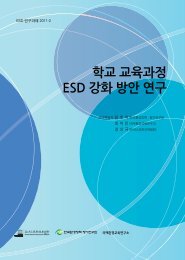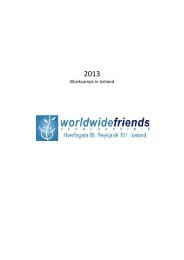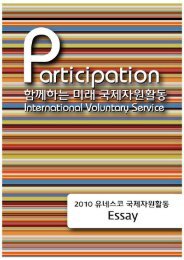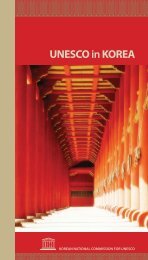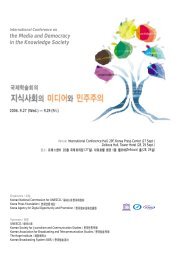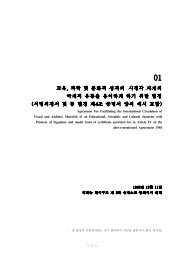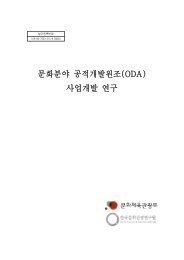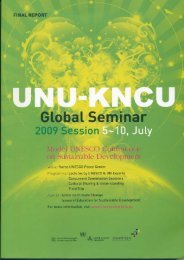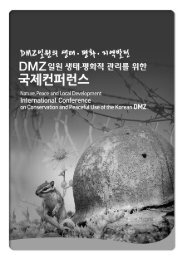Untitled
Untitled
Untitled
Create successful ePaper yourself
Turn your PDF publications into a flip-book with our unique Google optimized e-Paper software.
inevitable. Essentials of system thinking are the patterns from the parts to the whole,<br />
from objects to relationships, from structures to processes, from objective<br />
knowledge to contextual knowledge (Capra, 1996); and this coincide with ESD.<br />
Such system thinking has been highlighted in a number of ESD Documents.<br />
UNESCO, in 2009, published a mid-term review on the context and structure of<br />
DESD in order to examine the progressive outcomes of DESD (UNESCO, 2009c). The<br />
UNESCO Monitoring and Evaluation Expert Group (MEEG), which took part in<br />
preparing this review, points out the enhancements mirrored worldwide as a result<br />
of ESD. Below are the points.<br />
Future thinking, Critical reflective thinking,<br />
Understanding complexity and system thinking,<br />
Participation in democratic decision-making<br />
Planning and managing changes,<br />
Decision-making under uncertain circumstances,<br />
Understanding of relationships between the fields,<br />
Application of learning in various contexts,<br />
Responsible action regionally/globally,<br />
Understanding stakeholders and their interests<br />
Construction of consensus,<br />
Negotiation to cope with crisis/danger,<br />
Respect for others, Ability to understand/elucidate values<br />
- Competencies emphasized in the Review of Contexts and Structures for<br />
Education for Sustainable Development Learning for a sustainable world<br />
(UNESCO, 2009c)<br />
Among these, future thinking, critical reflective thinking, system thinking and<br />
participation are often emphasized as the key competencies of ESD.<br />
The DESD review also examines themes that are emphasized within the<br />
boundaries of ESD. As a result, traditional environmental issues such as health,<br />
water, maintainment of natural resources (water, soil, mineral, fossil fuel), decrease<br />
of biodiversity has been greatly highlighted, while issues such as the Millennium<br />
Development Goals (MDGs), natural disasters, corporate social responsibilities still<br />
remain weak. Moreover, socio-cultural themes such as peace, citizenship, ethics,<br />
equality, poverty, cultural diversity are more emphasized in poverty stricken<br />
communities/countries.



